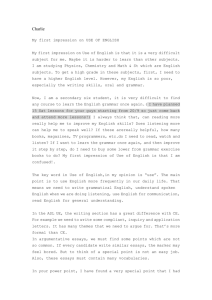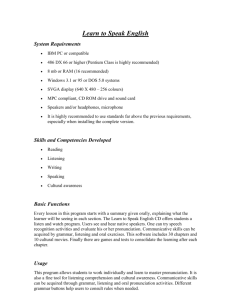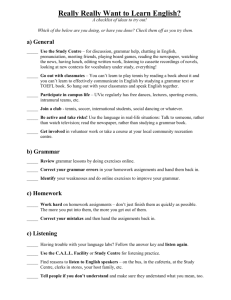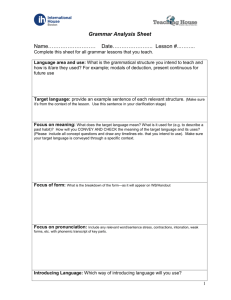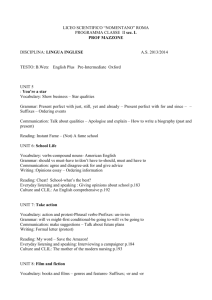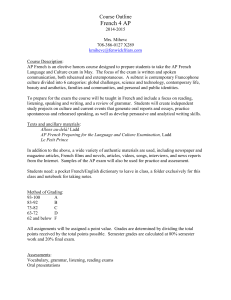Learning English
advertisement
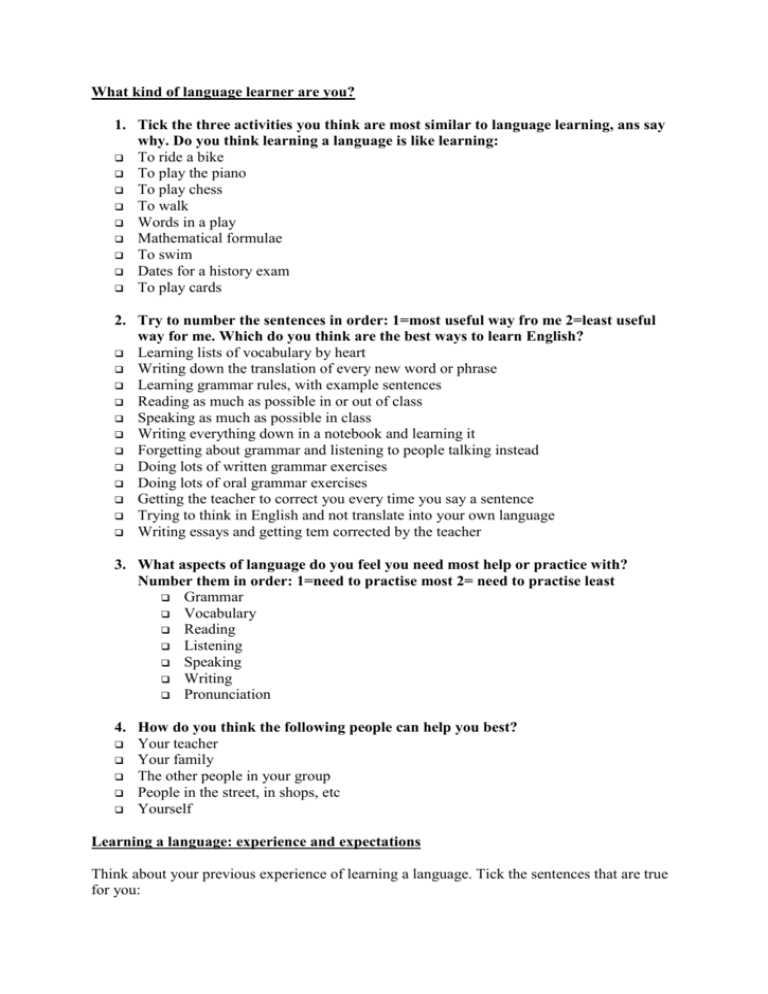
What kind of language learner are you? 1. Tick the three activities you think are most similar to language learning, ans say why. Do you think learning a language is like learning: To ride a bike To play the piano To play chess To walk Words in a play Mathematical formulae To swim Dates for a history exam To play cards 2. Try to number the sentences in order: 1=most useful way fro me 2=least useful way for me. Which do you think are the best ways to learn English? Learning lists of vocabulary by heart Writing down the translation of every new word or phrase Learning grammar rules, with example sentences Reading as much as possible in or out of class Speaking as much as possible in class Writing everything down in a notebook and learning it Forgetting about grammar and listening to people talking instead Doing lots of written grammar exercises Doing lots of oral grammar exercises Getting the teacher to correct you every time you say a sentence Trying to think in English and not translate into your own language Writing essays and getting tem corrected by the teacher 3. What aspects of language do you feel you need most help or practice with? Number them in order: 1=need to practise most 2= need to practise least Grammar Vocabulary Reading Listening Speaking Writing Pronunciation 4. How do you think the following people can help you best? Your teacher Your family The other people in your group People in the street, in shops, etc Yourself Learning a language: experience and expectations Think about your previous experience of learning a language. Tick the sentences that are true for you: 1. learning a language: involves hard work is interesting is difficult is frustrating is painful is confusing is boring can be fun is easy comes naturally requires a lot of memorization 2. when I am speaking a foreign language, I feel: shy frustrated stupid confident challenged happy embarrassed tongue-tied as if I am a different person 3. learning a language in class involves reading texts and answering questions translating texts reading literature writing grammar exercises doing a project learning about British and American culture learning grammar rules dictation listening to the teacher acting a play or dialogue making a TV or radio programme reading aloud learning lists of vocabulary frequent tests role play, mime and drama following a textbook making a newspaper letter writing practising speaking in pairs or groups listening to a tape or CD and answering questions games repeating in chorus practising pronunciation songs class discussion and debates writing stories or essays

